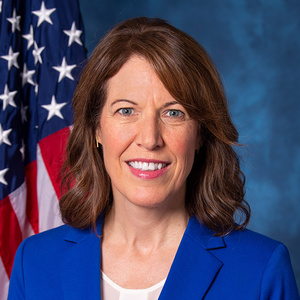House Ag Committee advances $1B for biofuel infrastructure

September 13, 2021
BY Erin Krueger
The House Agriculture Committee on Sept. 13 advanced its portion of the Build Back Better Act, which currently includes $1 billion in USDA funding to expand biofuel infrastructure to increase availability of higher blends of ethanol and biodiesel.
Rep. Cindy Axne, D-Iowa, was among the committee members who voted to approve the legislation. “From investments in our rural businesses to key infrastructure funding to promote biofuels and other clean energy sources, this section of the Build Back Better Act will support Iowa’s communities and chart a path to a cleaner environment for both ourselves and our children,” Axne said. “I appreciate Chairman Scott’s leadership and openness to hearing the priorities that I brought to him on behalf of the Iowans I represent – and I look forward to seeing how this section will be supported by other key provisions in our Build Back Better Agenda.”
The American Coalition for Ethanol on Sept. 10 issued a statement thanking Senate and House biofuel supporters for pushing the inclusion of biofuels infrastructure funding in the reconciliation package. “ACE members appreciate the tenacity of members of Congress like Sen. Amy Klobuchar and Reps. Cindy Axne and Angie Craig who helped secure nearly $1 billion for biofuels infrastructure funding in the reconciliation bill, representing a historic level of support if it becomes law,” said Brian Jennings, CEO of ACE. “These biofuel champions and others recognize the tremendous potential greater access to higher ethanol blends offers to consumers and to immediately decarbonize our transportation sector. ACE thanks House Ag Committee Chairman David Scott for moving the package forward with this historic provision for biofuels.
Advertisement
Advertisement
“We call on members in both the House and Senate to continue to fight for the inclusion of biofuels funding in the final reconciliation package before it reaches President Biden’s desk.”
Growth Energy also applauded the biofuel infrastructure funding in a statement released Sept. 10. “$1 billion for expanded biofuels infrastructure across the nation is wonderful news not only for our biofuels industry and our partners in agriculture, but for our efforts to reduce greenhouse gas emissions and decarbonize the transportation sector,” said Emily Skor, CEO of Growth Energy. “Filling up with higher blends of low-carbon, clean biofuels like plant-based ethanol reduces our dependence on fossil fuel and reduces greenhouse gas emissions by 46 percent compared to gasoline. This funding will ultimately make higher blends more accessible to all Americans.
Advertisement
Advertisement
“Over the course of this year as biofuels faced repeated setbacks, our champions in Congress have truly been tireless in their efforts to ensure success for rural America,” Skor continued. “We’re grateful to Rep. Axne, Sen. Klobuchar, Rep. Craig, Rep. Bustos, and Sen. Stabenow for securing this funding in the budget reconciliation package and continuing to fight for our priorities in Congress.”
Related Stories
Bangkok Airways Public Company Limited has officially announced the adoption of sustainable aviation fuel (SAF) on its commercial flights, reinforcing Thailand’s green aviation industry. The initiative took effect starting July 1, 2025.
Avalon Energy Group LLC and Sulzer Chemtech have signed a strategic alliance and partnership agreement to scale up the production of SAF. Under the agreement, Avalon has selected BioFlux technology for its portfolio of SAF projects.
The USDA has announced it will delay opening the first quarterly grant application window for FY 2026 REAP funding. The agency cited both an application backlog and the need to disincentivize solar projects as reasons for the delay.
Neste and DHL Express have strengthened their collaboration with the supply of 7,400 tons (9.5 million liters) of neat, i.e. unblended, Neste MY Sustainable Aviation Fuel to DHL Express at Singapore Changi Airport starting July 2025.
CoBank’s latest quarterly research report, released July 10, highlights current uncertainty around the implementation of three biofuel policies, RFS RVOs, small refinery exemptions (SREs) and the 45Z clean fuels production tax credit.
Upcoming Events










